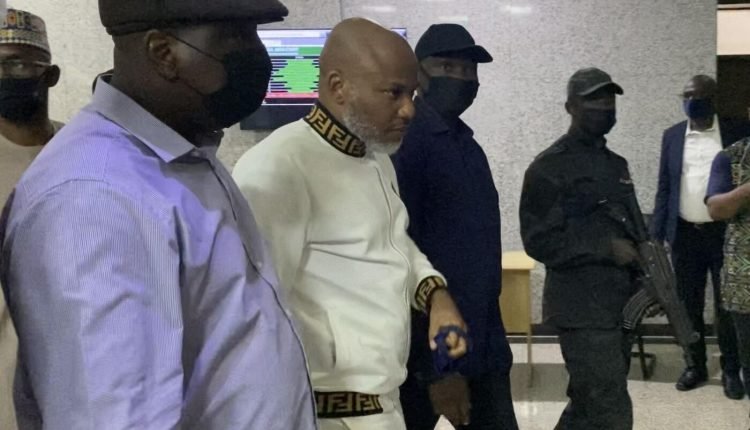In a significant move, the legal team representing Nnamdi Kanu, the detained leader of the Indigenous People of Biafra (IPOB), has submitted a comprehensive list of judgments to the Attorney General of the Federation (AGF), Lateef Fagbemi. This submission was made at the Federal Ministry of Justice in Abuja.
Barrister Nnaemeka Ejiofor, the head of Kanu’s legal team, addressed journalists on Thursday, emphasizing that these judgments were from both domestic and international courts. Each of these rulings directed the release of Nnamdi Kanu, underlining the legal basis for their demand.
Ejiofor explained that this action was taken in response to a statement by the AGF, in which Fagbemi claimed to be unaware of Kanu’s case. The AGF had indicated that the resolution of Kanu’s situation was a matter for the courts.
In a firm appeal to President Bola Tinubu, Ejiofor called for the immediate release of Kanu and urged the President to honor the various court judgments that mandate his release.
On May 24, AGF Fagbemi had commented on the complexities of Kanu’s case, stating that the charges against the IPOB leader could only be addressed by a competent court. He also highlighted a distinct difference between Kanu’s case and that of Omoyele Sowore, a separate high-profile detainee.
In the days preceding this submission, Kanu’s lawyers filed a preliminary objection at the Federal High Court in Abuja. They requested that Justice Binta Nyako, the presiding judge, decline jurisdiction over Kanu’s trial. The objection challenged whether the court had the authority to try Kanu for the charges listed in Counts 1, 2, 4, 5, and 8, arguing that the laws underlying these charges were unconstitutional.
However, Justice Nyako dismissed Kanu’s request for the restoration of his revoked bail and his transfer from the custody of the Department of State Services (DSS) to either house arrest or prison custody.
Nnamdi Kanu has been held in DSS custody since June 2021, following his arrest in Kenya. Since then, he has faced charges related to terrorism, brought against him by the Federal Government.
The legal team’s latest move aims to pressure the Nigerian government to comply with multiple judicial directives for Kanu’s release. The submitted judgments reflect a broad legal consensus on the illegitimacy of his prolonged detention. This legal push underscores the ongoing contention surrounding Kanu’s imprisonment and the broader political implications tied to the IPOB leader’s case.
As the situation develops, all eyes are on the Federal Ministry of Justice and the Nigerian government’s response to these renewed demands. The outcome of this legal and political battle could have significant ramifications for the future of IPOB and the broader quest for justice in Nigeria.

